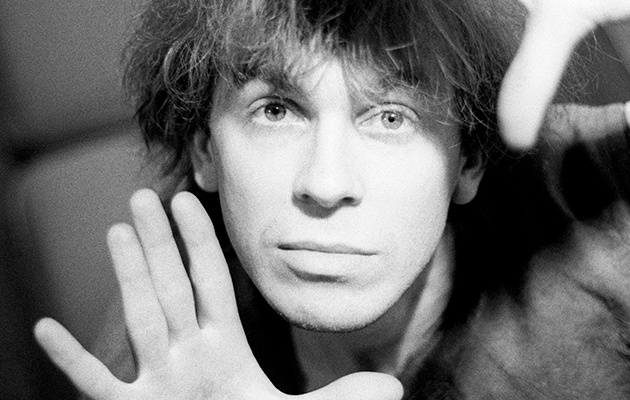On the run from The Teardrop Explodes and fleeting fame, JULIAN COPE retreated deep into the English countryside in 1983. There, he subsisted on Mars Bars and giant speed pills, played with his toy cars, crawled around under a giant turtleshell – and made arguably the greatest music of his career. Now, Cope and his cohorts tell the unexpurgated story of World Shut Your Mouth, Fried and the creation of a new English psychedelia… “What am I going to do? I can’t go to Tesco’s, that’s outrageous!” Words: Tom Pinnock
Originally published in Uncut’s November 2015 issue (Take 222)
________________________________
If you’d tuned into Top Of The Pops one night in September 1981, you might have seen a performance by Liverpool’s The Teardrop Explodes. Their single, “Passionate Friend”, was rising up the charts on the way to its No 25 peak and, to celebrate, the band’s singer and songwriter gyrated on top of a white grand piano, clad in voluminous leather trousers and with an equally voluminous blond hairdo.
On top of that piano, Julian Cope looked the very picture of an early ’80s teen idol. In reality, though, he was tripping on acid and terrified that his feet were sinking into the syrupy piano lid. Come 1983, Cope wasn’t on TV anymore.
“I had this game I used to play with [then-girlfriend, now wife] Dorian in ’83 that really wound her up,” explains Cope today. “I’d pretend I’d got a cold when we were watching Top Of The Pops and I’d grab the collar of my robe, and bunch it up with one hand around my neck. I would look at Top Of The Pops and then over to Dorian and, like a little old geezer, I would go, [pathetically] ‘Dorian, am I on this show tonight?’ And she would go, ‘Fuck off!!’
“I suppose she probably meant it, you know, because she’d gone from being a character on the New York punk scene to living with, you know, fucking Kevin Ayers.”
By the middle of 1983, the Teardrops had split, and Cope was in self-imposed isolation, licking his psychic and emotional wounds in Tamworth, the Midlands town he had grown up in. In contrast, his contemporaries Echo And The Bunnymen had just hit No 2 in the UK with their third LP, Porcupine, while Cope was busy playing with a toy keyboard, flying on suppository-sized speed and amassing a huge toy car collection.
As 1984 dawned, though, somehow Julian Cope would emerge as a thrilling solo artist, releasing two albums – now reissued as double-disc sets – that drew on his rural isolation and drug-damaged psyche to create the blueprint for a new kind of English outsider psychedelia.
“The Teardrops got big through no fault of my own,” he explains, tracking the trauma he felt after their split. “We were punks who’d been opportunist and, in the punk era, anybody who was opportunist stood a chance of accidentally being in the charts. But when it was taken away from me, even though I myself had taken the choice to split the group up, I suddenly realised that I had very quickly got used to the trappings of rock’n’roll. And I thought, ‘What am I going to do? I can’t go to Tesco’s, that’s outrageous!’”



